AI
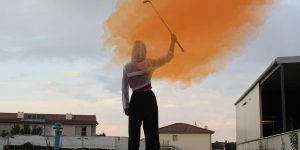
AIxDemocracy by IMPAKT: Radicalization by Design
Richard Rogers (US/NL), Bharath Ganesh (US/NL), Marc Tuters (CA/NL), Arjon Dunnewind (NL)
Social-Media-Plattformen füttern das Rohmaterial der Jugendkultur direkt in den nationalistisch-populistischen Aufstand, der derzeit den Planeten erfasst. Die Furcht vor einem existenziellen Feind vor den Toren der Festung Europa - oder vielmehr vor einem Feind innerhalb der Festung - wird durch diesen neuen politischen Stil vor allem in den Online-Kulturkriegen geschürt. Radicalization by Design diskutiert die Frage, ob unsere Medien uns radikalisieren. Verbinden uns die sozialen Medien oder reißen sie uns auch auseinander? Wie wirken sich Trolle, Verschwörungstheorien und Memes auf die Politik aus? Die Podiumsdiskussion erörtert Fragen der Redefreiheit, der radikalen Rede und der Entfremdung.
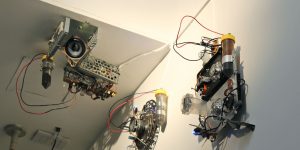
Colony
Darío Sacco (AR)
This sound bio-installation is formed by a colony of beings made up of disused technological parts and bio-units of decomposing organic material.
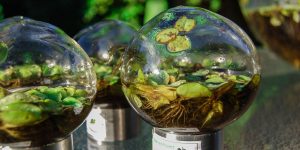
The Biosphere Project
Joaquín Fargas (AR)
The Biosphere Project consists of natural ecosystems isolated in sealed containers that only allow the external influence of heat and light.
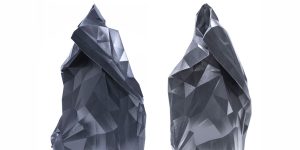
Uncertainty with AI-terity (Music Performance)
Koray Tahiroğlu (FI/TR)
The composition Uncertainty keeps the musician in a hesitant state of performance, providing a non-rigid but identifiable musical events, followed by ever shifting new sounds. Uncertainty is a composition written for the AI- terity instrument that comprises computational features of a particular artificial intelligence (AI) model to generate relevant audio samples for real- time audio synthesis. The unusual behaviour of the Al-terity puts the performer in an uncertain state during performance. Together with being able to move through timbre-changes in sonic space, the emergence of new sounds allows the musician to explore a whole new range of musical possibilities. Composition turns into a continuous state of playing, reformulating an idiomatic relationship with the Al-terity and opening up a fresh variety of musical demands.
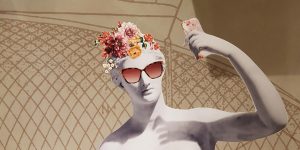
Exponential Mindset: The Skills of an Exponentialist
Niki Ernst, Eveline Wandl-Vogt
A 4-Sessions dive deep into the Exponential Mindset. An interaction series to consider the SDGs from an exponential growth strategies perspective.

CURATORIAL A(I)GENTS
metaLAB (at) HARVARD
Eight experiments in the computational curation of collections - Curatorial A(i)gents consists in eight machine-learning-based experiments in and around museum collections and data sets developed by members and affiliates of metaLAB (at) Harvard, an idea foundry, knowledge-design lab, and production studio experimenting in the networked arts and humanities.
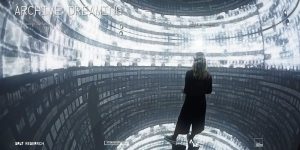
Synesthetic Architecture
Refik Anadol (TR), Kenric McDowell (US)
In Synesthetic Architecture, Refik Anadol (TR/US) and Kenric McDowell (US) take viewers on a journey into artistic and creative practice at the intersection of artificial intelligence, architecture and spatial design. They discuss both Refik’s personal experience of diving into deep learning technologies as a means of artistic expression and the development of this hybrid field over the past years.
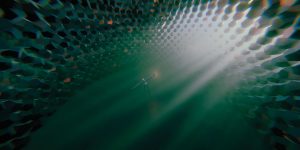
AI x Uncertainty
Jurij Krpan (SL) Speakers: Christl Baur (AT), Suzanne Livingston (UK), Špela Petrič (SL), Stephanie Dinkins (US)
Das Panel konzentriert sich auf die Einschränkungen und Unsicherheiten, mit denen KünstlerInnen im Umgang ihrer künstlerischen Praxis mit KI konfrontiert sind. Was sind die Herausforderungen der Zusammenarbeit an der Schnittstelle zwischen KI und Kunst? Welche Fortschritte lassen sich erkennen, und wo scheitert sie? Mit welchen Problemen sehen sich KünstlerInnen konfrontiert? Welche Rahmenbedingungen müssen geschaffen werden, damit KünstlerInnen Zugang zu den neuesten Forschungsergebnissen erhalten?
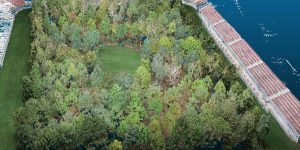
AI x Ecology
Carla Gomes (US/PT), Tega Brain (AU), Mark Coeckelbergh (BE), Lynn Kaack (DE), Stafano Nativi (IT), Claire Monteleoni (US), Martina Mara (AT)
Das Panel AIxEcology befasst sich mit der Bedeutung computergesteuerter Systeme für Ökologie und Umwelt. Künstliche Intelligenz kann eingesetzt werden, um Wasser zu sparen, den Artenverlust zu stoppen oder bestimmte Pflanzen im Feld ausfindig zu machen. Die optimierte Überwachung von Ökosystemen kann wesentlich dazu beigetragen, die Risiken des Klimawandels zu verringern und diesen entgegenzusteuern, zumal immer mehr Projekte versuchen, Daten und künstliche Intelligenz dafür zu nutzen.
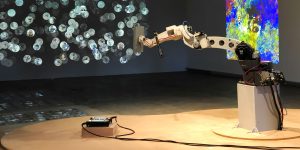
The New Real: Experiental AI and the AI Lab
Jake Elwes (UK), Drew Hemment (UK), Caroline Sinders (US), Anna Ridler (UK), Mahir Yavuz (TR)
The New Real erforscht die Grenze zwischen dem Realen und dem Künstlichen, während wir versuchen, in die so genannte "Neue Normalität" einzutauchen und sie zu verstehen. Individuelle und kollektive Resilienz fußt auf der breiten Nutzung vernetzter Online-Tools und -Umgebungen durch eine Mehrheit der Bevölkerung in den unterschiedlichsten beruflichen und privaten Umgebungen. Gleichzeitig entfaltet sich die Krise in einem Kontext, in dem das Vertrauen in datengesteuerte Online-Inhalte und die Interaktion wie nie zuvor in Frage gestellt werden.
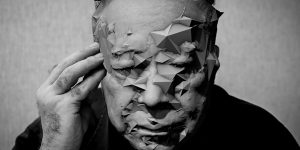
AI x Humanity
Rasha Abdul-Rahim, Adam Harvey (US/DE), Nye Thomson (UK), Milena Marin (RO), Victoria Vesna (US)
Mit den jüngsten Fortschritten in der künstlichen Intelligenz erlangen sie zudem die Fähigkeit zu lernen, sich zu verbessern und autonome Entscheidungen zu treffen. Damit können sie Aufgaben erfüllen, von denen man bisher annahm, dass sie menschliches Fachwissen, Kreativität und Intuition erfordern. Das bedeutet, dass Algorithmen, künstliche Intelligenz, Maschinen und Robotik ein Potenzial bergen, dass unser heutiges Verständnis von Menschlichkeit in Frage stellt. Welche Herausforderungen und Chancen ergeben sich daraus?
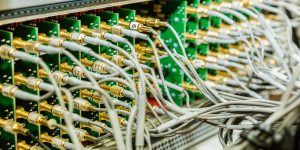
Ars Electronica AIxMusic Online Hackathon: Final Presentations
Annelies Termeer (NL) moderator + Participants
Anlässlich des ersten Online-Festivals veranstaltet Ars Electronica seinen ersten internationalen AIxMusic Hackathon im Rahmen des AIxMusic Festivals 2020.

AIxMusic - Artificial Stupidity
Moisés Horta-Valenzuela (MX/US), Artemi-Maria Gioti (GR), Ali Nikrang (AT), Alex Braga (IT) and Portrait XO (US)
Das Panel "Artificial Stupididity" lädt KünstlerInnen des Ars Electronica Festivals ein, ihre Erfahrungen im Kontext von AIxMusic auszutauschen. Das Thema KI bekommt aktuell große Aufmerksamkeit in den Medien und wird kontrovers behandelt.

DIRTY LIVES BETTER
Barbara Ungepflegt (AT), Elsbeth Wallnöfer (IT)
Since December 2017 Barbara Ungepflegt has been Minister for Homelandtrash and International Affairs. Ungepflegt considers urgent measures to preserve the constantly disappearing homeland dirt until it is too late for Team Austria, animals and dumplings. In cooperation with Elsbeth Wallnöfer, chairwoman in the home country, the Minister will present in detail the program of DIRTY LIVES BETTER at the 2020 Ars Electronica Festival.
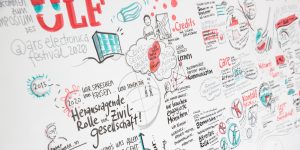
Die Zivilgesellschaft der Zukunft
Unabhängiges LandesFreiwilligen Zentrum (AT)
Wann, wenn nicht jetzt über die Zukunft der Zivilgesellschaft reden? Wie schon 2015 die Flüchtlingskrise, hat 2020 nun auch die Coronakrise die Rolle zivilgesellschaftlichen Engagements unterstrichen. Wieder einmal wurde deutlich, wie viel jene Initiativen, Vereine, NGOs, NPOs und Einzelpersonen, die wir als „Zivilgesellschaft“ betrachten, zu tun imstande sind.
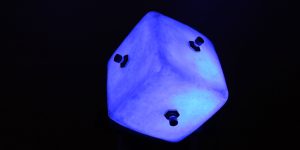
Online Exhibition NEW CONNECTIONS
HKU University Of The Arts Utrecht (NL)
The opening night will feature several live performances all related to the theme “new connections”. This for example by revisiting and passing on music traditions through electronic means, new tactile electronic instruments and an AV show performed by live coding artists.
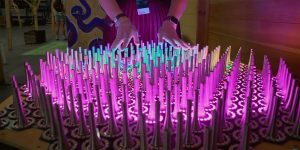
This is Sónar+D
Sónar+D – Sónar Festival's creative technologies conference – is an international congress exploring how creative minds are changing our present and imagining new futures, in collaboration with researchers, innovators and business leaders from all sectors and industries.
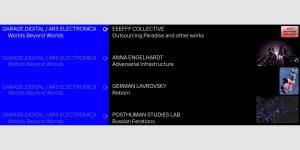
Garage Digital: Worlds beyond Worlds
Garage Museum of Contemporary Art / Nikita Nechaev, Moscow (RU)
Works and practices of several artists and collectives, that participate in Garage Digital program, reflect on the different types of networks, infrastructures, ecologies and algorithms, and pose questions of the possible tactics and strategies to reassemble these systems with new types of communities, modes of rationality and production in mind —cunning, poetic, speculative and emergent.

Transformation & Transmission – panel discussion, presentations
A live-streamed presentation of a new selection of works from the exhibition, with live Q&A and panel discussion with the artists. These works range from films, to AR experiences, to hybrid objects, each united by the themes of anxiety, uncertainty, and distance that run through these works. During the festival, we will conduct streamed online tours of the works, show examples, and interview the authors in a live stream hosted every day (times TBC).
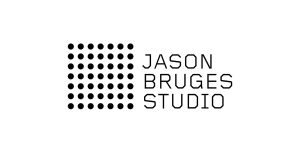
Jason Bruges Studio (UK)
The Bartlett School of Architecture, University College London (UK)
A curated selection of talks and 360 films that provide insight into the Studio’s process and practice. Normally inhabiting physical spaces, a number of the Studio’s installations are transformed and brought to a virtual audience for the first time.


